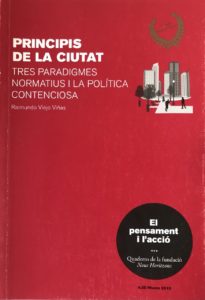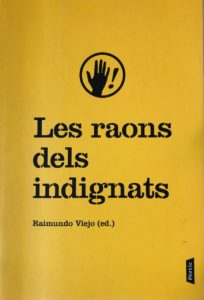Jun
23
World Ayahuasca Conference 2019
- POSTED BY Mundus IN Hipótesis lisérgica

Hace poco menos de un mes, bajo el ímprobo esfuerzo organizativo de ICEERS, se celebró en Girona un evento único: la Ayahuasca World Conference 2019. Gentes procedentes de los más variados lugares y disciplinas se reunieron para hablar sobre esta planta desde todo tipo de perspectivas: etnobotánica, antropología, derecho, psicoterapia, artes, etc. Más de un millar de participantes entre los que destacaban algunos de los nombres más reputados en la materia.
Al final del encuentro se aprobó una Declaración de los Pueblos y Nacionalidades Indígenas de la Cuenca del Amazonas . Un mensaje claro de advertencia sobre los riesgos de la crisis de crecimiento que está teniendo lugar en el consumo de la planta. El éxito del llamado Renacimiento Psiquedélico no está exento de peligros en la misma medida en que inscribe, voluntariamente o no, en el contexto irreversible de la globalización capitalista.
En el marco de este acontecimiento tuve la oportunidad de realizar una presentación titulada: “Psychedelia and instutionialization: The emancipatory potential of ayahuasca”. En este documento de trabajo he comenzado a poner por escrito algunas de las ideas que reclama la hipótesis psiquedélica. Gracias a la amabilidad de ICEERs y su fenomenal equipo tuve ocasión de participar no solo con esta humilde primera aportación, sino de poder estar presente también en las actividades de la conferencia.
En breve espero poder presentar el texto definitivo. A modo orientativo dejo aquí la sinopsis:
Psychedelia and institutionialization: The emancipatory potential of ayahuasca
Psychedelic substance use plays a role in the various cultures and in the most diverse ways. In some of them, this use has been integrated in a traditional way into community life without causing major problems. On the contrary, in more than a few cases, have become — as demonstrated by the case of ayahuasca — a in source of inspiration and cultural creation, of emotional well-being and psychic balance, of respect and adaptation of social life to the natural environment, etc. In other societies, such as contemporary capitalist cultures, its appearance has been problematic, if not openly conflictive. It could not be otherwise in a system that is founded on antagonism.
The hypothesis that we explore in this presentation points out the need for an autonomous institutional framework (neither state-based nor commercial) to facilitate the sound incorporation of the benefits that psychedelic substances can offer and, at the same time, to minimize and/or avoid the problems that are being identified. In this sense, we understand that ayahuasca is of interest because, while it can be subject to the familiar disadvantages that it shares with other types of psychedelic substances, it is nevertheless true that it presents certain novel elements that may situate it as a deviant case on which to propose novel hypotheses to respond to the heuristics that the psychedelic question poses. Through the way its use is put into practice, ayahuasca could now find itself in a position to establish a useful institutional framework for its incorporation into society.



Comment ( 1 )
Comments are closed.